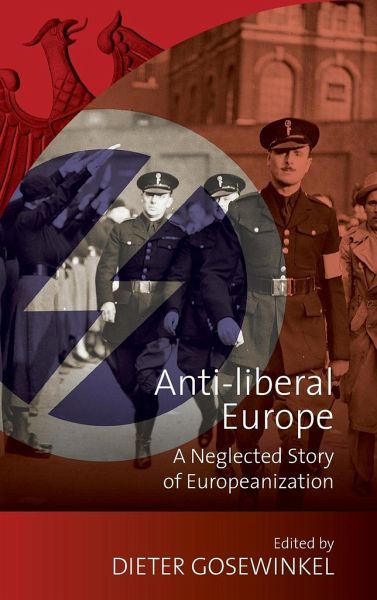Nicht lieferbar

Anti-liberal Europe
A Neglected Story of Europeanization
Herausgeber: Gosewinkel, Dieter
Versandkostenfrei!
Nicht lieferbar
Offers a detailed study on the political and intellectual history of European integration Shifts focus away from the institutional histories of the EU, towards an examination of cultural and societal influences on 20th Century Europe Explores modern European integration through the scope of pre-modern anti-liberal ideologies Determines anti-liberal practices contributed to the process of modern European integration











